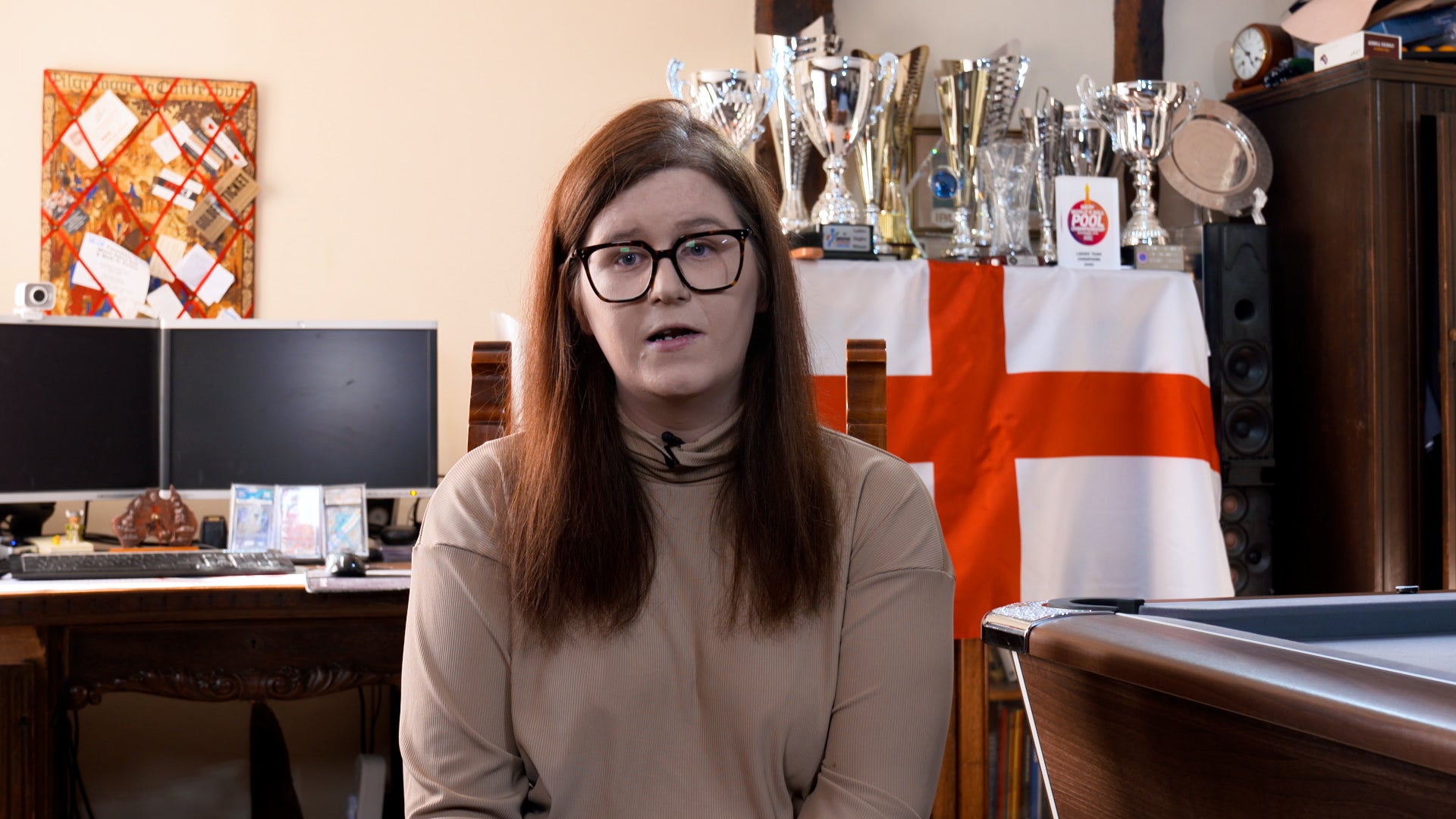
A decision to ban transgender women from ladies’ pool events was made after an “unreal” number of complaints from players, the chairman of an English sports body has said.
Paul Thompson, chairman of the English Blackball Pool Federation (EBPF), told a court on Tuesday that “nobody knew how to manage” the “delicate” situation after concerns were raised about transgender players’ participation in 2023.
Professional pool player Harriet Haynes is taking legal action against the EBPF over its ban on transgender women playing in the ladies’ county competitions, a decision that was made in August 2023.
Mr Thompson told Canterbury county court that Ms Haynes was not allowed to play in EPBF competitions for no other reason than “the fact Harriet is a biological male”.
He clarified: “The only reason she’s not playing for the county team at present is to do with her being a biological male from birth.”
Mr Thompson said he had to take into consideration the feelings of female-born players who had objected to competing against trans women.

“I think the subject was kind of taboo to a certain degree, in this day and age you can’t come out and say what you want to say, because you get called a bigot or transphobic,” he told the court.
Mr Thompson said that he organised a meeting of the executive committee to consider the issue in July 2023, and then made the announcement about the ban on the 27th August.
When asked by Robin White, counsel for Ms Haynes, why he did not consult with transgender players, Mr Thompson said: “What about the hundreds and hundreds of other women that it affected, am I just supposed to ignore that?
“We had loads of complaints. The amount of complaints was unreal.”
He added: “It was a new thing for all of us, nobody knew how to manage it. If I was allowed to manage it myself... I would have said no to Harriet playing in any games. As a pool player I know that males are far superior than what women are at playing pool.”
The court heard that around 15-20 anonymous written complaints were passed to Anna Goodwin, the EPBF secretary, but Mr Thompson said that many more complaints were raised with committee members personally.
Ms Goodwin told the court that they made the decision “because we didn’t think it was fair on our female players”, adding: “We didn’t exclude transgender people, we made a section in the open section for them to play”.
After the ban was announced, the men’s section was made into a open category for trans women to play there, she said.
Ms Haynes, who is represented by legal firm Colman Coyle, told the trial on Monday that a “big part of my life was playing county ladies’ blackball pool” with the Kent team, something she now cannot do.
Ms Haynes said she was offered the captaincy of the Kent ladies’ team but could not take it up because of the EBPF ban.
Ms Goodwin said that another transgender player, not Ms Haynes, captained her ladies’ county team and is “happy” with that, despite not being able to play in the ladies tournaments.
Lawyers for Ms Haynes have argued that eightball English pool is not a gender-affected sport. Ms White said the case centred on “fairness” and how that could be achieved within the sport.
The trial at Canterbury county court, sitting at the Magistrates, continues for the rest of the week.







